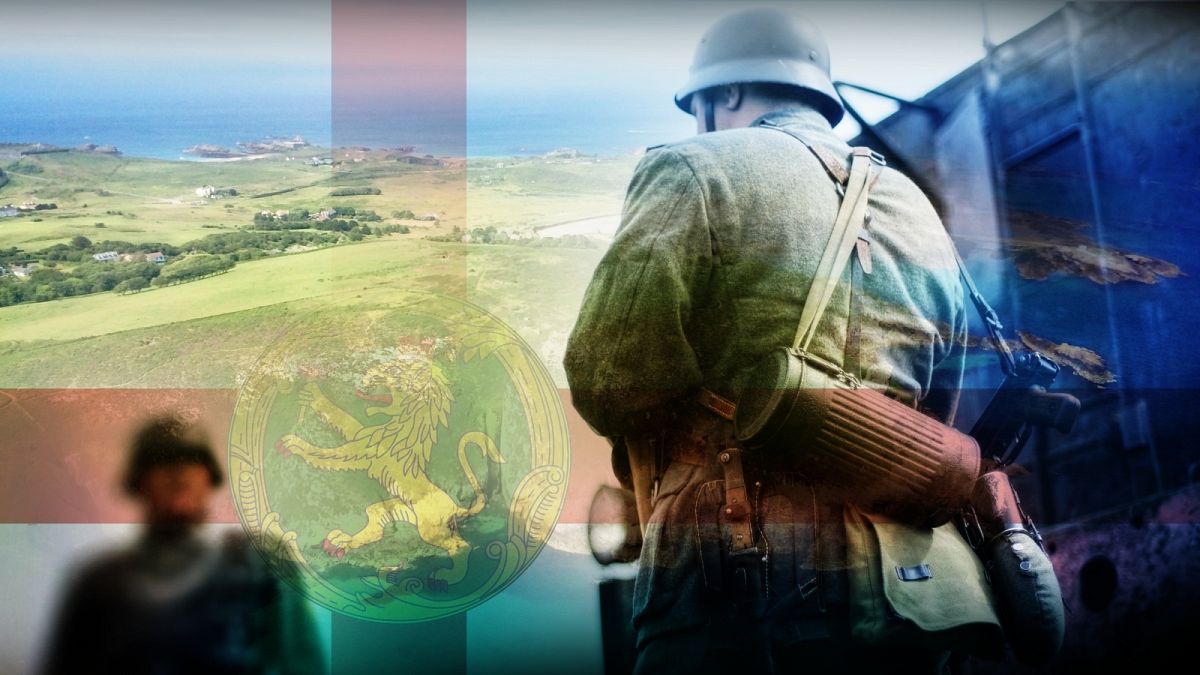The UK government has appointed a team of experts to carry out an investigation into whether the death toll at World War II camps on Alderney is much higher than the official figure.
A new investigation has been launched in a bid to establish how many people were murdered by Nazis at World War II concentration camps on a tiny British island, amid fears the death toll could be much higher than the official number.
Alderney, one of the Channel Islands, lies just 13km off the north coast of France, and housed four forced and slave labour sites, including the concentration camp Lager Sylt.
There's almost nothing left of Lager Sylt these days, as the Germans burned it down and destroyed all the records before Alderney was retaken by British forces in May 1945.
In the months that followed liberation, British soldiers and their German prisoners worked together to clear mines off the island, before civilians - evacuated in advance of the occupation - could return in time for Christmas that year.
Alderney was, in effect, a giant work camp, where prisoners - mostly Russians and Ukrainians who were brought in to build massive defensive fortifications on the island - were literally worked to death.
At least one transport with hundreds of Jewish prisoners from France was taken to the island; as well as north Africans and Spanish republicans.
Some of the prisoners in Alderney were tortured or shot, while those unable to work were liable to be sent to the death camps in mainland Europe to be exterminated.
The official number of deaths in the Alderney camps stands at 389, but experts think it could be higher still. Only eight Jewish deaths were officially recorded.
Amid questions over that figure - and questions over the years over the lack of convictions related to these deaths - the UK's Holocaust envoy, Lord Pickles, recently announced a government inquiry to tackle what he called "the distortion of conspiracy theories".
Almost 80 years later it's still an incredibly sensitive subject on the island, with it's modern-day population of around 2,000 people, with some local residents and politicians believing strongly that the past need not be revisited.
"The dead deserve the dignity of the truth; the residents of Alderney deserve accurate numbers to free them from the distortion of conspiracy theorists," said Lord Pickles, whose panel of leading academics will publish a report in March next year, and who has invited people to contribute to the inquiry.
"Exaggerating the numbers of the dead, or even minimising them, is in itself a form of Holocaust distortion and a critical threat to Holocaust memory and to fostering a world without genocide," Lord Pickles added.
The president of Alderney, William Tate, welcomed the move, stating that "as an island our priority is to show our respect for those who suffered and died here, however many there were".
He said the experts would gather all the evidence "including from those on our island who witnessed the atrocities first hand or from their descendants who hold records, and they will decide whether it is possible to say how many died."
Dame Margaret Hodge, an MP whose father fled Nazi persecution in Germany, told The Guardian newspaper there could be "no more lies and no more cover-up".
Doctor Gilly Carr, from the Department of Archaeology at Cambridge University, is one of the people on the panel.
Speaking to Euronews, she acknowledged there had been many competing theories published in newspapers over the years, and added "for the sake of the people of Alderney, and for the dead and their families, I think it's important to be able to put this to rest by getting international experts to be able to put some kind of finality on the numbers."
On reports that the death toll could be in the tens of thousands, she said the latest academic work meant "there's no known evidence indicating those numbers are viable."
However, she urged people to come forward with any evidence they have to help the inquiry as "some records have been stolen from archives since the war, there was a big theft or records in the 1990s from Jersey Archives for example, some people have private records handed down in families, so we are aware there are other records out there in addition to publicly available archives."
Another of the panelists, Dr Caroline Sturdy Colls, professor of conflict archaeology at Staffordshire University, has used imaging technology to inspect the sites of two mass graves on the island.
Speaking to Index on Censorship before her appointment was confirmed, she said she was cautious over speculation about numbers of victims but added "It is evident from the wide range of testimonies available and from the surveys we did of the camps in which Jews were housed that they were treated appallingly, and more Jews likely died than we know of.”
